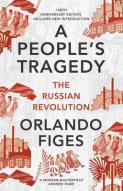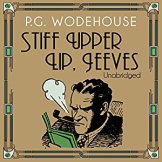
….In my memory they slid from a bank of sea mist, and perhaps they did, but memory is a faulty thing and my other images of that day are of a clear, cloudless sky, so perhaps there was no mist, but it seems to me that one moment the sea was empty and the next there were three ships coming from the south.
….Beautiful things. They appeared to rest weightless on the ocean, and when their oars dug into the waves they skimmed the water. Their prows and sterns curled high and were tipped with gilded beasts, serpents and dragons, and it seemed to me that on that far off summer’s day the three boats danced on the water, propelled by the rise and fall of the silver wings of their oar banks. The sun flashed off the wet blades, splinters of light, then the oars dipped, were tugged and the beast-headed boats surged and I stared entranced.
* * * * * * * * *

….I wanted to ask her then if she did not remember. I wanted to ask if the manner of her death had been erased from her memory, if she lived now as if those things had not occurred.
….Perhaps the days before her death, and the way death was given to her, are nothing in the place where she is. Perhaps the gods keep the memory of death locked up in their store, jealously guarded. Instead, the gods release feelings that were once pure or sweet. Feelings that mattered once. They allow love to matter since love can do no harm to the dead.
….They approach each other, my father and my sister, their movements hesitant. I am not sure that, once they have seen each other, they still see me. I am not sure that the living interest them. They have too many needs that belong to themselves only; they have too much to share.

….The trains of the London and West Coast Railway run over the lines of another company as far as this town, which should have been reached by the special rather before six o’clock. At a quarter after six considerable surprise and some consternation were caused amongst the officials at Liverpool by the receipt of a telegram from Manchester to say that it had not yet arrived. An inquiry directed to St. Helens, which is a third of the way between the two cities, elicited the following reply:-
….‘To James Bland, Superintendent, Central L. & W. C., Liverpool. – Special passed here at 4.52, well up to time. – Dowser, St. Helens.’
….This telegram was received at 6.40. At 6.50 a second message was received from Manchester:-
….‘No sign of special as advised by you.’
….And then ten minutes later a third, more bewildering:-
….‘Presume some mistake as to proposed running of special. Local train from St. Helens timed to follow it has just arrived and has seen nothing of it. Kindly wire advices. – Manchester.’
From The Lost Special by Sir Arthur Conan Doyle
* * * * * * * * *
….By 1921, there were twice as many bureaucrats as workers in Russia. They were the social base of the regime. This was not a Dictatorship of the Proletariat but a Dictatorship of the Bureaucracy. Moscow, in Lenin’s words, was ‘bloated with officials’: it housed nearly a quarter of a million of them, one-third of the total workforce in the city by the end of 1920. The centre of Moscow became one vast block of offices as committees were piled on top of councils and departments on top of commissions.
….Perhaps a third of the bureaucracy was employed in the regulation of the planned economy. It was an absurd situation: while the economy came to a standstill, its bureaucracy flourished. The country was desperately short of fuel but there was an army of bureaucrats to regulate its almost non-existent distribution. There was no paper in the shops but a mountain of it in the Soviet offices (90 per cent of the paper made in Russia during the first four years of Soviet rule was consumed by the bureaucracy).

….I broke off. He was looking at me with a cold, glassy stare, as no doubt he had looked at the late lions, leopards and gnus whose remains were to be viewed on the walls of the outer hall. Fellows at the Drones who have tried to touch Oofy Prosser, the club millionaire, for a trifle to see them through till next Wednesday have described him to me as looking just like that.
….‘Oh, so that’s it!’ he said, and even Pop Bassett could not have spoken more nastily. ‘I’ve got your number now. I’ve met your sort all over the world. You won’t get any five pounds, my man. You sit where you are and don’t move. I’m going to call the police.’
….‘It will not be necessary, sir,’ said a respectful voice, and Jeeves entered through the french window.
….His advent drew from me a startled goggle and, I rather think, a cry of amazement. Last man I’d expected to see, and how he had got here defeated me. I’ve sometimes felt that he must dematerialize himself like those fellows in India – fakirs, I think they’re called – who fade into thin air in Bombay and turn up five minutes later in Calcutta or points west with all the parts reassembled.
- More





